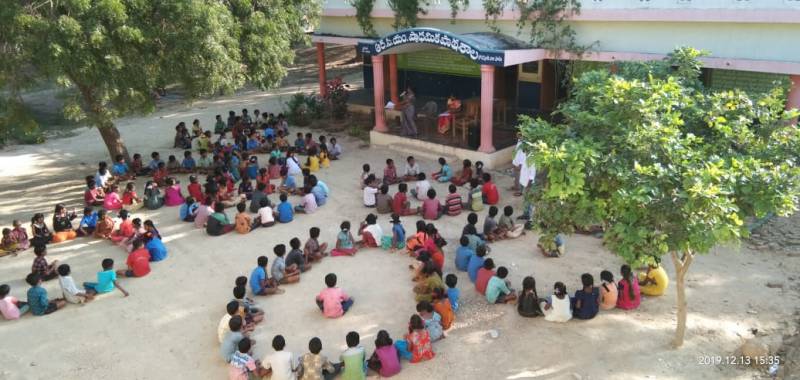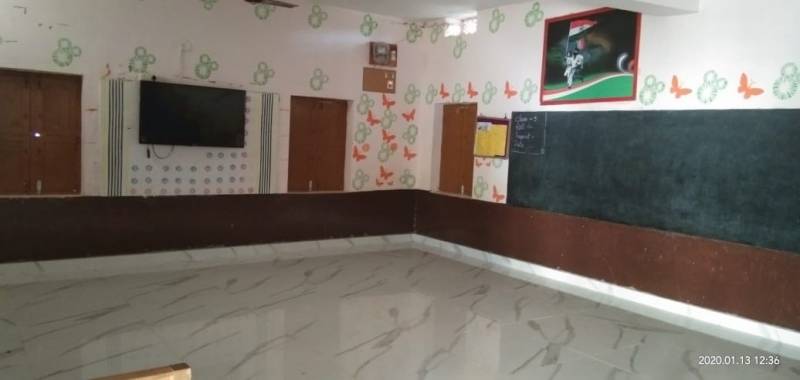A Guntur school foregoes fifth standard as Gurukul beckons students
By Jinka Nagaraju
Hyderabad: Three days ago, while addressing a conclave on ‘Excellence in Education’ at Vijayawada, Group Chairman of The Hindu, N Ram, lauded the decision of Andhra Pradesh government to introduce English as Medium of Instruction (EMI) as a radical step and contended that it was demand-driven. Stating that EMI was in tune with the thrust laid on English language in the Southern States, Mr Ram said what Chief Minister YS Jagan Mohan Reddy proposed was universalization of EMI, which no other State had perhaps ventured till date.
Ram’s statement brings to mind a situation prevailing in the 18th century Madras Presidency where every elite family firmly believed that English would alone pave the way for a brighter future. The difference is that at that point in time, demand for English learning was greater among the Brahmins and a few elite families from other castes.
The clamour for English education from respectable families led to the formation of Hindu Literary Society in 1830 and setting up of a modern English school in 1834 in Madras (now Chennai). The school was an instant hit and by next year, it became inadequate. This led to a petition drive. One famous petition, which was submitted to the government in 1839, was written in three languages-English, Tamil and Telugu. It clearly shows how widespread the demand for introduction of English in Madras Presidency was even before the Macaulay Minute entered the scene.
The life of Vennelakanti Subbarao, (1784-1830), a first-generation beneficiary of English education who rose to become the chief interpreter of Madras’ Sadar Adalat, stands testimony to Mr Ram's statement.
Subbarao learned the language from his relatives who were gumastas of East India Company. Knowing the English language just enough to copy government files was considered a great skill in those days. Armed with the skill, Subbarao, a native of Ongole, could get a job in Guntur with a Company official Henry Wilson for a respectable month salary of Rs five. One of Subbarao’s accounts aptly captured the huge demand for English in his days. Subbarao wrote in his memoir that as many as 500 English teaching schools dotted the famous Mount Road of Madras.
So, the demand for universalisation of English education is more than 200-year-old. Now, the urge to learn the language for social empowerment is being felt even among the lower sections of society. A government-aided primary school in Guntur district’s Bodepudivaripalem perfectly reflects the mood of the times.
The school, RCM Primarily School, caters to the needs families of agriculture labourers, mostly Dalits and other OBCs, from 10 villages. Compared to many government schools, RCMPS is the best-run school with clean classrooms and a decent garden, and in no way inferior to any corporate school. The parents admit their children with a strange request that their wards should be so prepared that they can crack the Gurukul entrance test so that they get entry into English medium in Gurukuls.
Every family wants to see their children in an English medium school. So, the school starts giving special coaching from the day students are admitted to fourth standard. The coaching is so effective that the entire class has been able to crack the exam. It has been happening for ten years now.
To put in another way, the school is foregoing the fifth standard every year and the room earmarked for the class has been lying vacant for a decade.

“Every year 98 per cent class four students get admission to Gurukul from our school. Parents admit children with the Gurukul entrance test rider. Getting admission to Gurukul is the sole aim for the parents. Even at the risk of losing fifth standard entirely, Gurukul coaching is given to the students. The demand is so high from parents, we have no option but honour it,” Shika Margaret, the headmaster, said.